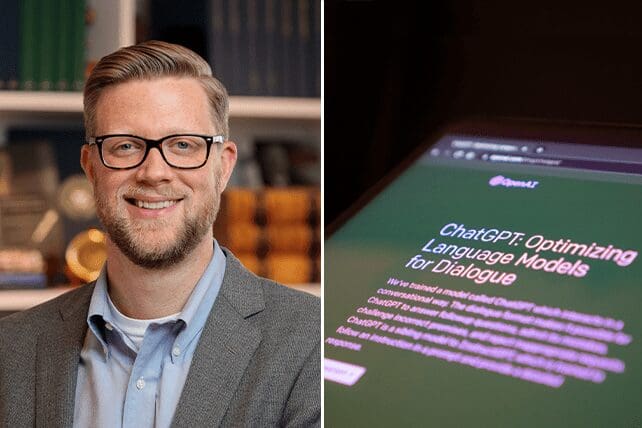Technology is expanding our moral horizons and is not really a separate set of ethical issues to navigate, as it has become a part of most if not all ethical and social issues of our day.
How does AI technology like ChatGPT, which gives the appearance of humanity, affect how we view ourselves as created in the image of God?
The introduction of advanced AI systems has fundamentally challenged much of what we have assumed about the uniqueness of humanity. For generations, we assumed that what it meant to be human was the ability to think, create, and to perform certain complex tasks. But these systems are now performing some of those tasks that were solely reserved for humans in past generations.
It is far too easy today to assume that our value and dignity—and that of our neighbor—is simply based on what we do or on what we can contribute to our society. But the Christian ethic reminds us that even in an age of emerging technologies like AI that the value and dignity of humans isn’t rooted in what we do but who we are as unique image bearers of our creator.
RELATED: How Well Does ChatGPT Understand Christian Theology?
God made us in his very image and nothing—not even the most advanced AI systems—will be able to change that status given to us by our creator.

